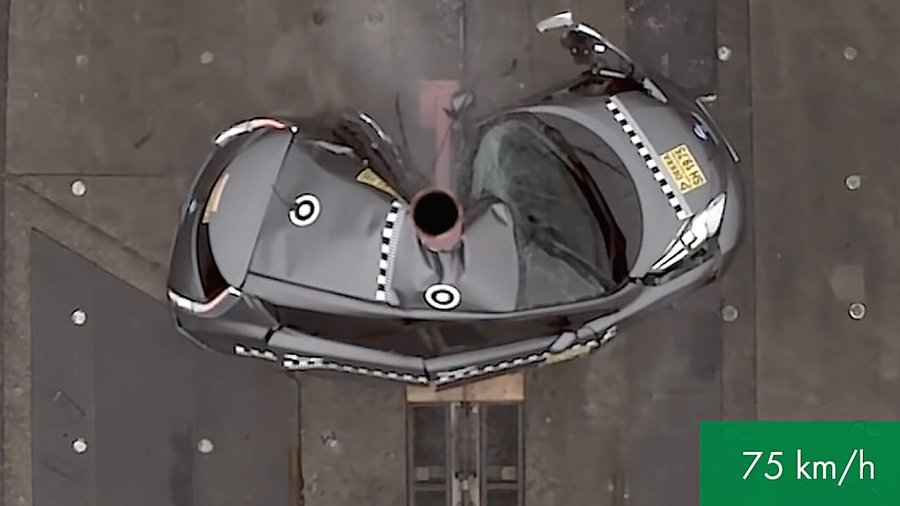Nissan Leaf Side Crash Test In The Name Of Science Looks Brutal

The first-generation Nissan Leaf was replaced in 2017 by an overhauled model that brought improvements on all fronts, but DEKRA wanted to find out how the original would fare in a crash test. The German Motor Vehicle Inspection Association did more than just replicate the crash tests set up by Euro NCAP years ago as they crashed Nissan's electric hatchback at considerably higher speeds, hence the brutal footage of the impact and the rather scary aftermath.
The main idea behind the crash test was to simulate the impact with a tree at speeds greater than the ones used in the regular crash tests and see how emergency rescue methods to save those inside trapped cars could be improved. DEKRA teamed up with researchers from the University Medical Center Göttingen in an attempt to determine whether EVs are just as safe as traditional cars powered by combustion engines.
While Euro NCAP side-crashed the zero-emissions hatch at 50 km/h (31 mph) back in 2012, DEKRA smashed the Leaf into a pole at 75 km/h (47 mph). It's important to point out that the test organized by the European New Car Assessment Programme involved using a movable deformable barrier ramming into a car that was stationary whereas in this new test the EV is the one that moves and collides with a pole.
The outcome is far scarier in DEKRA's test as the wheel-less Leaf almost folds and we can see one of the headlights flying off. While the footage is undoubtedly brutal, experts say the Leaf is just about as safe as a regular car, but the chances of anyone surviving in the EV or a comparable ICE car in those conditions would be slim. Let's keep in mind the original Leaf got a five-star rating when it was tested seven years ago, earning an 89% score for adult occupant protection and 83% for child occupant.
What I'm trying to say is that while the footage is indeed quite shocking, it would be the same story with a similar car powered by a conventional engine. Here's what the experts had to say: "The big manufacturers of series electric vehicles have managed to achieve at least the same level of safety that we know from combustion vehicles."
DEKRA also crashed another original Nissan Leaf, this time a front collision at 84 km/h (52 mph) compared to the front impact of the Euro NCAP test that took place at 64 km/h (40 mph). There was a third Leaf tested at the DEKRA Crash Test Center in Neumünster where a Renault Zoe was also evaluated. Thankfully, a fire breakout from the battery pack was not reported.
Related News


